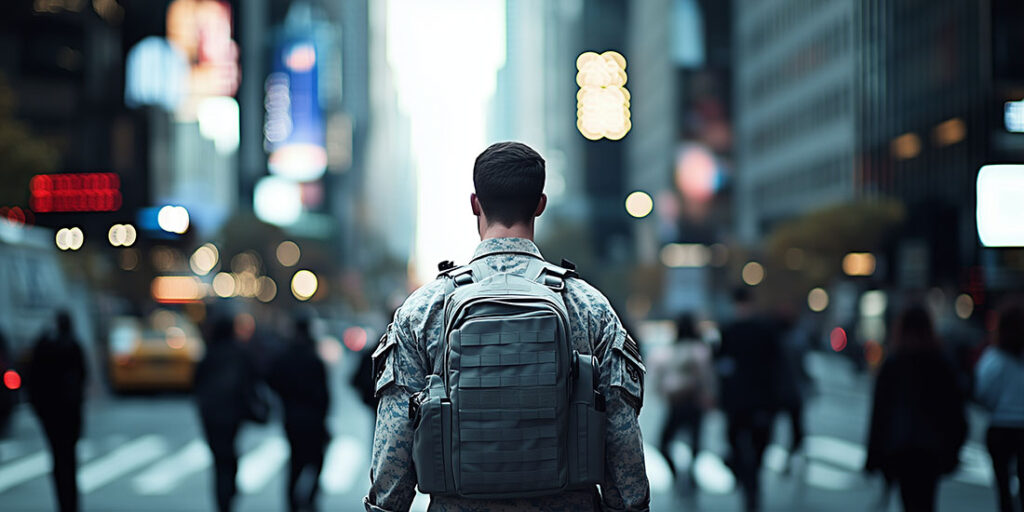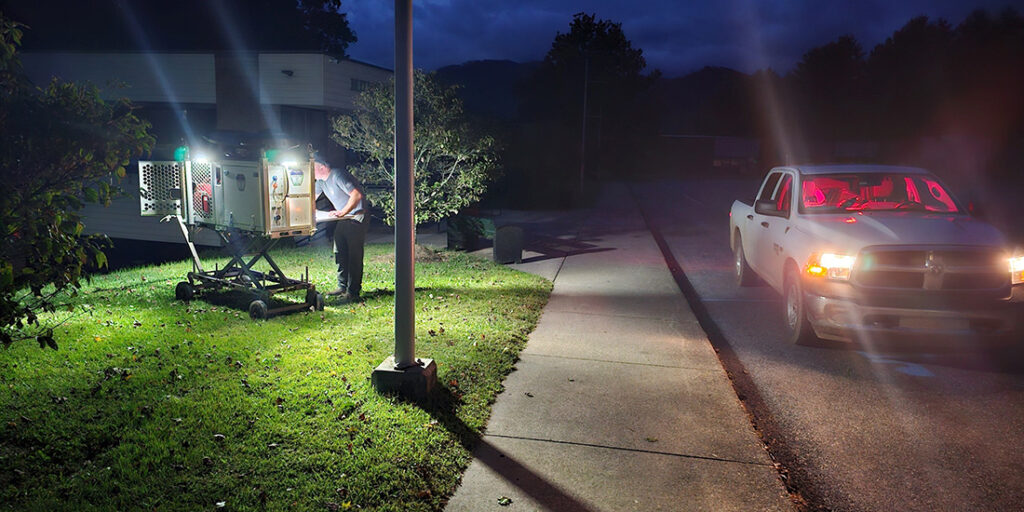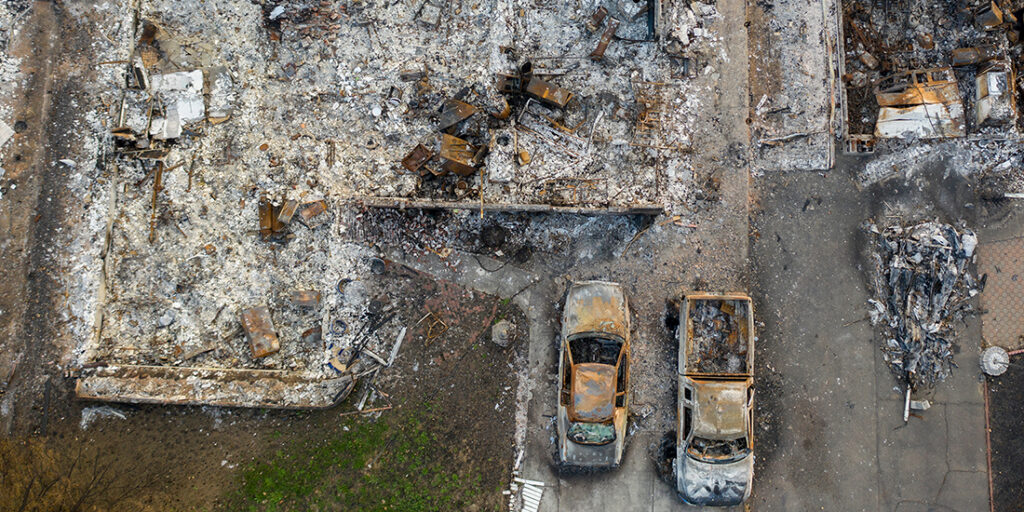EMERGENCY MANAGEMENT

Law Enforcement Collaboration Within Multidisciplinary Teams
- Richard Schoeberl and Anthony (Tony) Mottola
Multidisciplinary teams are inherently collaborative and benefit intricate police cases and vulnerable populations. Adopting the expertise of professionals in medicine, social work, forensics, and more, these teams deliver a more thorough and efficient response than a single agency could accomplish independently.
MOST Recent

Wildfire PREsponse: Closing the Gap With Mitigation
Mark Howell
June 18, 2025
Mitigation is essential to managing wildfires. As fire seasons grow longer and more costly, responders should be PREsponders, and mitigation experts may participate in response. Coordinated efforts to prevent wildfires are a proven strategy to address the next fire season.

Public Order Policing Units in Disasters
Robert Leverone
June 18, 2025
Modern disasters highlight the critical need for effective crowd control and management, especially when people are deprived of essential resources. The role of specialized law enforcement units in managing crowds is vital to ensuring that disaster response efforts can reach and assist victims efficiently and peacefully.

Managing Animal Loss: Emergency Carcass Operations
Joshua Dise and Marshal Wilson
June 11, 2025
Carcass management is rarely top of mind for emergency managers, but during mass animal deaths, it tests preparedness, coordination, and public trust. Including it in all-hazards planning closes a critical gap and boosts community resilience.

Why Emergency Management Is a Good Career for Transitioning Veterans
Mathew Perrill
June 11, 2025
For many service members, the transition from the military to a civilian workforce can be challenging. They have been trained in a specialized skill set and now must determine how to effectively apply those skills in civilian employment. In the emergency management field, veterans can find the vocational purpose they
EMERGENCY MANAGEMENT ARCHIVES
Why Emergency Management Is a Good Career for Transitioning Veterans
Mathew Perrill
June 11, 2025
For many service members, the transition from the military to a civilian workforce can be challenging. They have been trained in a specialized skill set
Caring for the Affected at Family Assistance Centers
Jennifer Stansberry Miller
May 28, 2025
In moments of crisis, a well-executed family assistance center can offer clarity, connection, and compassion that victims’ families and survivors need to begin making sense
Meeting the Psychosocial Needs of Child Survivors
Emily Heard
May 21, 2025
Without adequate support and resources, disasters can leave lasting psychological effects on children. In the United States, an estimated 14% of children experience a natural
Not Lost in Translation: A Multilingual Corps Approach
Diana Sanchez-Vega
May 14, 2025
Disaster survivors and responders often face psychological hazards like acute stress disorder, depression, and post-traumatic stress. These issues are worsened in multilingual communities, where language
Disaster Stress Management in an Emergency Operations Center
Mary Schoenfeldt
May 7, 2025
Disasters affect responders and community members, but they also bring trauma to those working inside emergency operations centers. Distance from the scene does not create
A Holistic Strategy for Responders’ Well-Being
Camilo Olivieri
May 7, 2025
First responders and emergency managers face constant, high-pressure stress from trauma, long hours, and critical decisions. This often leads to chronic stress, increasing risks of
Follow Us
Get Instant Access
Subscribe today to Domestic Preparedness and get real-world insights for safer communities.
EMERGENCY MANAGEMENT
Most Recent

Bridging Communication Gaps: Lessons from Hurricane Helene
Greg Hauser
April 30, 2025
Hurricanes in 2024 caused widespread damage to infrastructure, leading to a critical but often overlooked issue: isolation. Physical and technological

Connectivity: The Foundation of Disaster Response and Preparedness
Cory Davis
April 30, 2025
In an era of increasingly frequent and severe weather events, the demands on first responders have never been greater. To

Emergency Alerts: The Missing Link
Rodrigo (Roddy) Moscoso
April 23, 2025
As satellite-to-cell technology grows more common, cell phone makers must move quickly to adopt it. This link can bridge emergency

Hidden Barriers to Public Safety Interoperability
Gabe Elias
April 23, 2025
Decades of work have improved public safety’s ability to share information. However, the journey toward better interoperable communication requires uncovering
EMERGENCY MANAGEMENT ARCHIVES
Farm to Power: New Hazards in Rural Communities
Russ Kane
March 26, 2025
In the interest of reducing methane pollution and establishing a revenue stream for a renewable resource, dairy and livestock operators are creating mechanisms to produce
Agroterrorism: A Persistent but Overlooked Threat
Dan Scherr and Tanya M. Scherr
March 19, 2025
Agroterrorism is not new. Considered a subset of bioterrorism, it has become an increasing concern to the U.S. With so much of the agriculture sector
The Societal and Economic Dangers of Agroterrorism
Michael (Mike) Nicholls
March 12, 2025
While Ireland’s potato blight was destructive to the Irish population, modern agroterror attacks could be designed to hurt a nation’s economy rather than to kill
Cost Analysis: Protecting the Grid and Electronics from an EMP
The Foundation for Infrastructure Resilience
March 12, 2025
Because modern societies are increasingly reliant on electronics, they are more vulnerable to the effects of an electromagnetic pulse event. As nations move to electrify
Beyond the Showcase: Strengthening Biosecurity at Livestock Exhibitions
Joshua Dise
March 5, 2025
Hazards and risks associated with state and local fairs mirror those of other high-attendance events—medical emergencies, mass casualty incidents, and other public safety risks. However,
The Human Factor in Cybersecurity Events: Critical Education Components
Dan Scherr and Tanya M. Scherr
March 5, 2025
When considering cyberattack risk, understanding the primacy of the human factor is central in developing plans for continuity of operations and incident response. With the
Follow Us
Get Instant Access
Subscribe today to Domestic Preparedness and get real-world insights for safer communities.




